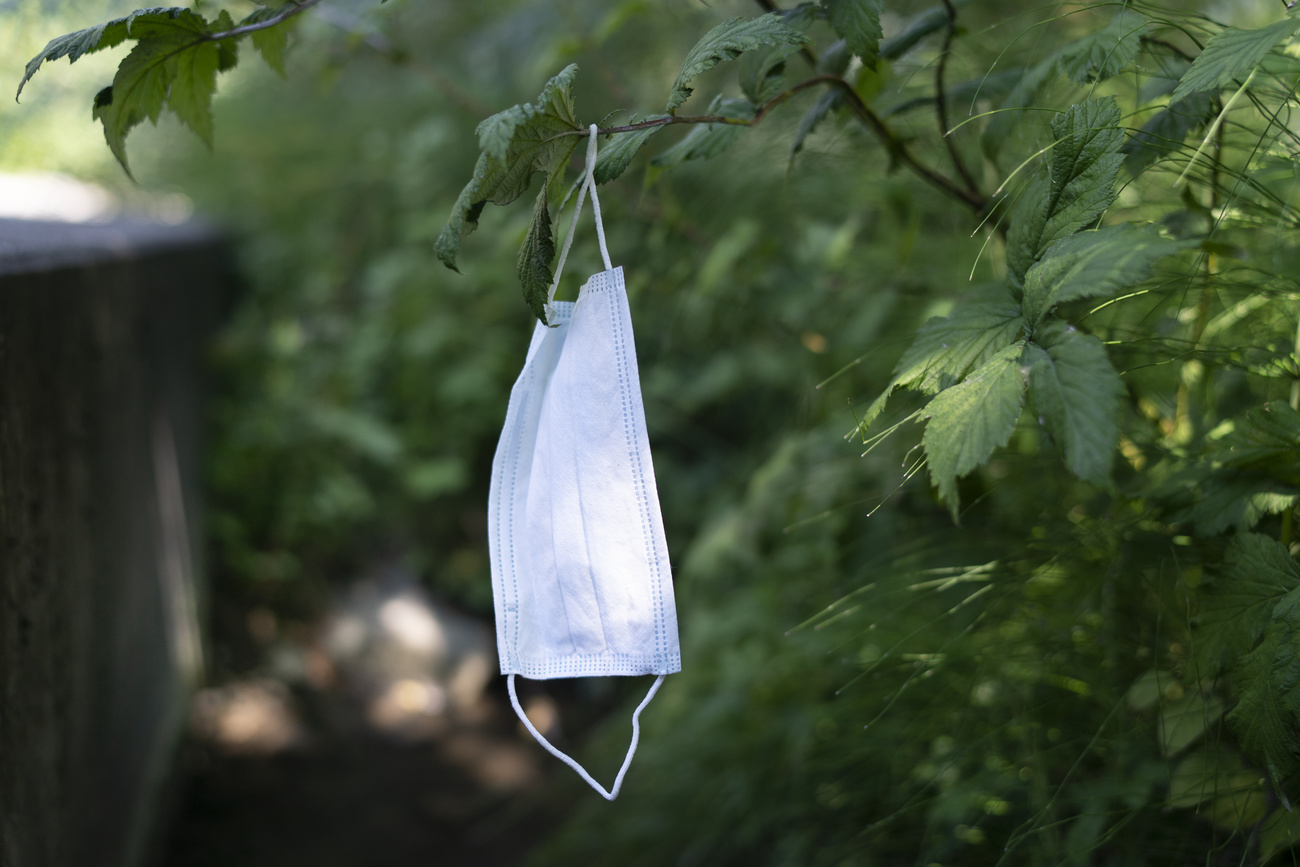
Study: fabric masks need 20+ washes to be more eco-friendly than disposable

A Swiss federal research institute has found that disposable surgical masks made of plastic are more environmentally friendly than cotton fabric masks based on a lifecycle assessment.
The analysisExternal link was released on Wednesday by the Swiss Federal Laboratories for Materials Science and Technology (Empa).
The mask study took into account the greenhouse gas balance, energy and water consumption as well as the overall environmental impact (expressed in so-called environmental impact points) of the production, use and disposal of both a disposable surgical mask and a fabric mask made of cotton.
This was calculated for a person who uses public transport to commute to work on a daily basis and goes shopping three times a week. Based on recommendations from the Swiss National Covid-19 Science Task Force, this person would either use two cotton masks per week, which are washed at 60° Celsius (140° Fahrenheit) after use and disposed of after five washing cycles, or 13 disposable polypropylene surgical masks.
Contrary what many would expect, the cotton mask performed worse than the disposable mask when considering the overall balance.
Roland Hischier, head of Empa’s Life Cycle Assessment Group, explained that this is because the “fabric mask has a very high environmental impact during manufacturing”. This is because cotton cultivation is very water intensive. Cotton fabric masks perform better than surgical masks in terms of energy consumption and greenhouse gas balance.
How the mask was produced can also put the fabric mask out ahead. For example, if the regions where the cotton is harvested have a high proportion of rain irrigation or use recycled cotton the so-called water footprint of cotton masks would be better, said Hischier.
If the fabric can be washed 20 times (rather than five) without losing its protective function, it is ahead of the disposable mask in terms of ecological impact. This could be a factor to consider in the design of masks. Empa also notes that some masks are also not disposed of properly, creating environmental pollution.
The researchers are planning to look at other types of masks, such as compostable version, as well as additional factors to include in the assessment methodology such as antiviral coatings on masks that could increase the wearing time between washes.

In compliance with the JTI standards
More: SWI swissinfo.ch certified by the Journalism Trust Initiative































You can find an overview of ongoing debates with our journalists here . Please join us!
If you want to start a conversation about a topic raised in this article or want to report factual errors, email us at english@swissinfo.ch.